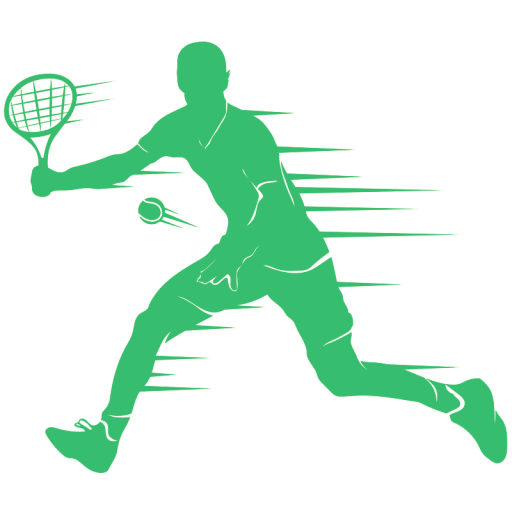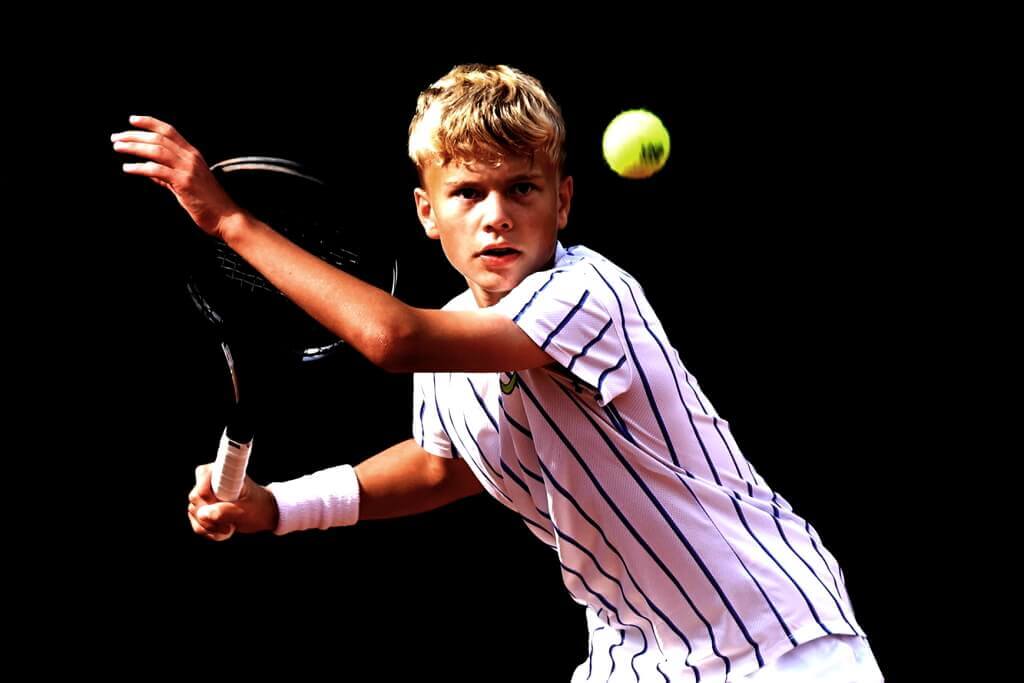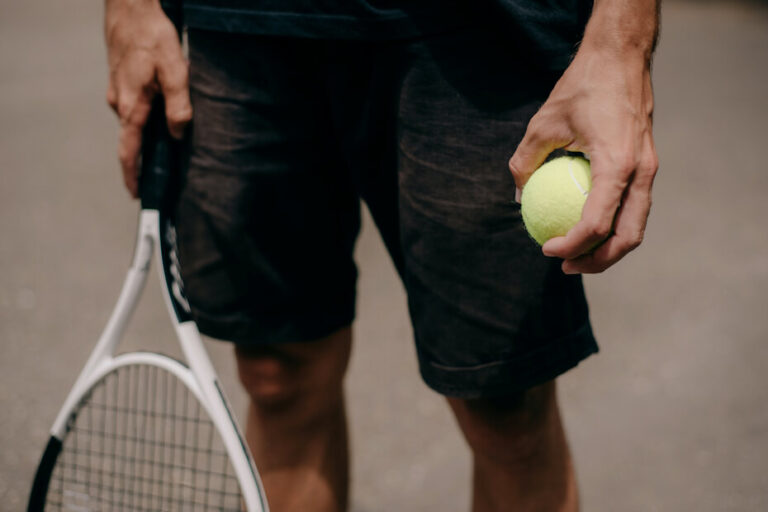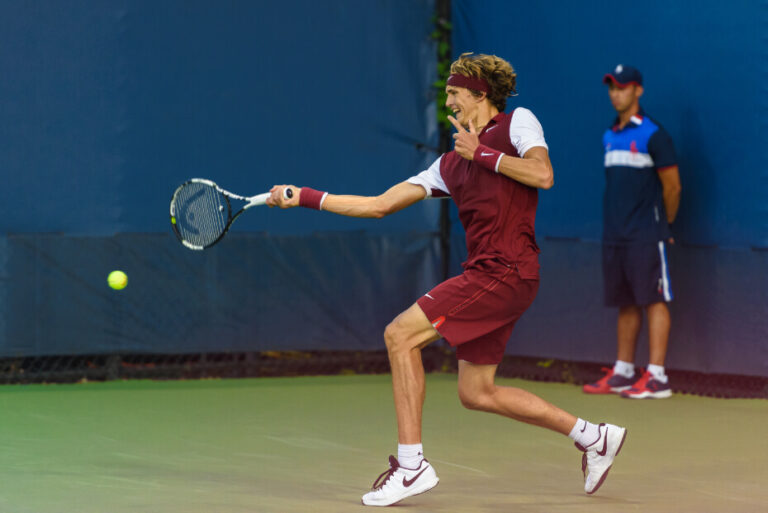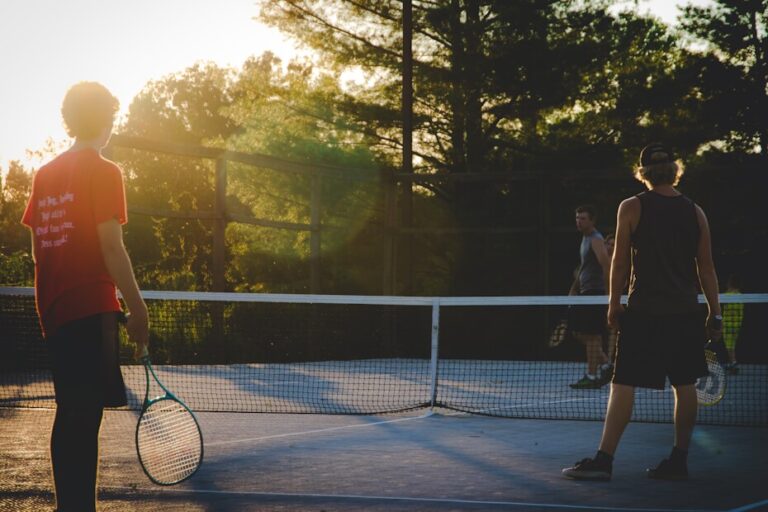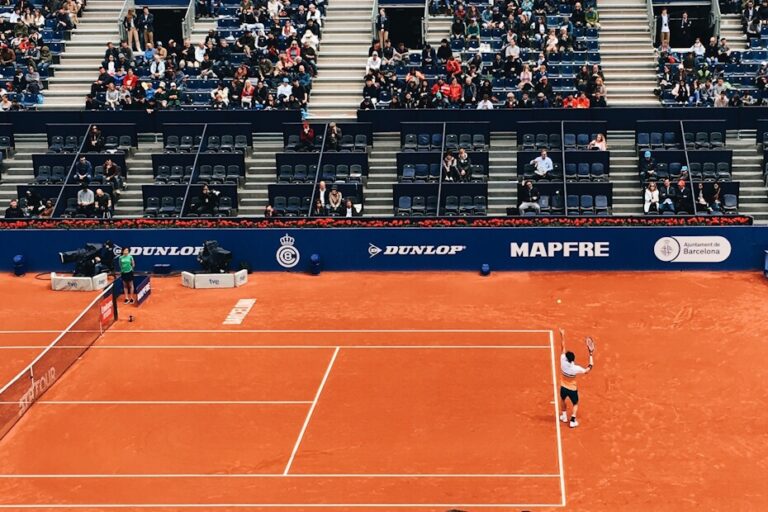Tennis is a game which can be won or lost in the mind. In fact, the same can be said for virtually any sport out there, which is why the demand for sports psychologists is now greater than ever before.
Picture the scene: You’re a professional tennis player making your Grand Slam debut at Wimbledon. Against all of the odds, you’ve destroyed your opponents and have made it to the final. History could be made. As you listen to the roar of the crowd, gaze at the murky grey skies, and feel the tepid drizzle of the rain from Britain’s famous summertime (sorry, UK, we love you really) on your face, you begin to doubt yourself. Suddenly a little voice in the back of your mind tells you that you’ve no chance, that your opponent is too good, and that you’re out of your depth.
Now, before the match has even started, you’ve already been defeated mentally. As you make your first serve your heart rate rises, you strike the net with the ball and register a fault. Now, the pressure is on, you’re sweating, and you’re more nervous than a politician taking a lie detector test. Again, you register a double-fault, and the nerves get the better of you. An hour or so later, you walk from the court defeated physically, and mentally.
The aforementioned example may be a little far-fetched, but the message we’ve trying to get across is that tennis can be won and lost in the mind. If you’re struggling with the psychological side of things, here’s a look at how to master the mental game of tennis.
What is the “Mental Game” of Tennis?
Numerous studies have found that improving one’s mental toughness before engaging in sport or physical activity in general, can be beneficial in terms of sporting ability and overall success rates.
Put simply, if sports players, in this instance tennis players, can control the way they think and not allow nerves, or the pressure of the game, to get on top of them, they’ll play better and will have a much better chance of succeeding.
Now, the likelihood of the average Joe reaching the final of a Grand Slam tournament like the example we provided earlier is of course very far-fetched, but, if you can improve your mental toughness and get your head in the game, as it were, you stand a much better chance of beating your buddies at the local tennis club, so that’s nearly the same, right?
The mental game of tennis is basically how your brain thinks before, during, and after engaging in a game of tennis. It is the psychology behind why you think the way you think about tennis, and how it affects you.
Why are Psychology and Mental Toughness so Important in Tennis?
Psychology is important in tennis, football, rugby, baseball, and every other sport in existence.
Mastering the mental game of tennis is so important because your mind has an enormous influence on how you play tennis and indeed, how you react to certain things in the game too.
It doesn’t matter how great your serve is, how long you’ve been playing tennis, how fit you are, or how many amateur tournaments you’ve won, if you play against an opponent of similar abilities who is much mentally stronger than you, 99% of the time, they are going to beat you.
The stronger you are mentally, the more likely you will be to win because you won’t let the pressure get to you, you won’t overthink, and you won’t make silly mistakes because you weren’t paying attention.
When your mind lets you down, that’s when the pressure builds, and is when you start making mistakes because you allow yourself to become frustrated. John McEnroe for example is a prime example of this. Back in 1981 at Wimbledon, McEnroe was playing fellow American, Tom Gullikson.
McEnroe was an established star and had finished runner-up at last year’s tournament. He was briefly number 1 ranked in the world before entering the tournament and was a favorite to win this year. His opponent was ranked 40 in the world, and it was generally believed that McEnroe would steamroll through Gullikson in the first round, to progress to round 2. What happened instead, however, shows just how important it is to keep your cool and keep your head in the game.
McEnroe started off fairly, weak and made a few silly mistakes. Each time he made a mistake he became more and more frustrated. McEnroe served what he believed to be the perfect ace, only to find that the umpire had called it as being out. McEnroe was livid and as he approached the umpire, teeth clenched, snarling, he yelled one of the most iconic lines in the history of tennis ‘YOU CANNOT BE SERIOUS?!’
The line, more iconic than Arnie’s ‘I’ll be back’ in The Terminator, is still used to this day, more than four decades later. McEnroe continued to argue that the ball had not gone out, but the umpire was having none of it. He let John off with a warning, but that wasn’t all.
More decisions went against the ‘bad boy of tennis’ and he grew more and more frustrated with the umpire, even insulting him and calling him the ‘absolute pits of the world’. Edward James, the umpire, didn’t appreciate being called the ‘absolute pits of the world’ and so he gave McEnroe a penalty point. McEnroe was incensed and continued to hurl abuse at the umpire and officials.
McEnroe was lucky, as nowadays that behavior wouldn’t fly, and he would have been disqualified. Luckily for McEnroe, he managed to get his head back in the game, and after a few more mistakes, he got back on track and showed why he was briefly the best player in the world.
What’s noticeable about McEnroe’s behavior, however, is that, had he had his head in the game and kept his composure, he surely would have made much lighter work of his opponent, who was clearly not as talented as him. Not only that, but he was very lucky not to have been disqualified, as tennis is very much a civilized gentlemen’s sport.
Put very simply, if you allow yourself to grow frustrated, or even to overthink or doubt yourself, you’re making things much tougher for yourself when playing tennis, and you are less likely to win.
The Importance of ‘Flow’ in Tennis
Speak to any sports psychologist about why mastering the mental game of tennis is so important, it won’t be too long before they talk to you about the importance of Flow.
If you’ve ever found yourself doing something, almost as if you were on autopilot without really thinking about anything, yet still focussing on the task at hand, there is a very strong chance that you will have been experiencing what sports psychologists call ‘Flow’.
Flow is basically a state of mind in which an individual becomes completely immersed in a sport or an activity, without really focussing on anything, or anyone else. Basically, Flow is a complete immersion in an activity.
In tennis, for example, each movement you make, each shot, each volley, each serve, and each return will flow effortlessly from one to the next, melding into one as if you are experiencing some form of out-of-body experience. Your instincts take over and it is like somebody else is in control of your body.
If you were playing tennis and you needed to secure one more point to win, before taking your shot, you may find yourself focussing on all of the things that could go wrong. Just for a split second, you may find that voice in the back of your head telling you to not hit the net. When you strike the ball with your racket, what do you think will happen next? Yep, you guessed it, the ball is heading right at the net that you needed to avoid in order to win.
If you were experiencing Flow, as soon as you hit the ball, you’d know exactly how hard to hit it, which stroke to use, and where to aim. Experiencing Flow means that you aren’t thinking about missing the net, hitting it out of bounds, or any other mistakes. In fact, you aren’t thinking about anything, you’re simply playing the best tennis of your life with no mental doubts or distractions.
In a state of Flow, because your mind is clear, you’d hit the ball, score the point, win the match, and be paraded around your hometown like the hero you are. Okay, that last part probably won’t happen, but you’d still win the match, and as you know, winning is awesome!
How to Master the Mental Game of Tennis
So far, we’ve talked about the importance of mental clarity and toughness in tennis, we’ve looked at how one of the world’s greatest players was nearly foiled on his quest for a Grand Slam by his own temper and lack of mental focus, and we’ve looked at what the zen-like state of Flow is.
We haven’t, however, yet looked at what you can do to improve your mental clarity, focus, and strength when playing tennis. Fear not, though, because we’re putting that right in this next section.
Here’s a look at several tried and tested tips from tennis players and sports psychologists alike, based around mastering the mental game of tennis.
1. Control the Controllable
Playing any kind of competitive sport is tough, yet because of the fast-paced nature of tennis, it has to be said that tennis is one of the harder sports to master.
One of the hardest parts of tennis is psychology because there is just so much that you need to think about. In terms of building mental toughness for tennis, it’s important to control what can be controlled.
You are in charge of your emotions, so it’s down to you to stay focused and not to grow frustrated, or to become distracted. While you cannot control how your opponent plays, you can control the way you react to each shot they play, both physically, and emotionally too.
2. Practice Being Under Pressure
Pressure gets to some people easier than it does to others, and if you’re a person that doesn’t cope well under pressure, there are things you can do to change that.
Push yourself out of your comfort zone and try things that make you feel nervous and pressured. If for example, you ordinarily like to just play tennis alone because you feel pressure when playing against people, go ahead and force yourself to play against other people.
What’s the worst that can happen? You might lose, but who cares, because the next time you play you’ll be that little bit better.
3. Get Rid of Any Self-Doubt
Without question, self-doubt is one of the worst characteristics that a tennis player can possess, this is why getting rid of it is so important.
As a tennis player, confidence is key, yet building confidence is easier said than done. If you doubt yourself, you’ll start making avoidable mistakes and you won’t play to the best of your ability because you’ll be asking yourself what the point is.
A great way to get rid of self-doubt is to build confidence in your game. Don’t make excuses for why certain shots of yours suck, or for why you’re unfit, and instead take responsibility for your actions and commit to getting better. If your fitness isn’t great, don’t look for excuses, instead, work on your cardio and get fitter. If your serving isn’t on par with others, rather than looking for excuses for why that is, instead, practice your serving and spend extra time mastering it.
Experts call this ‘shipping it’ because you’re putting the problem out there and acknowledging it, rather than making excuses and hoping others don’t notice. Instead of doubting yourself, accept your weaknesses and focus on ways of turning them into strengths.
4. Focus on the Game
If you want to succeed at tennis, as we looked at Flow, you need to be in the moment and you need to focus solely on the game of tennis, rather than other variables.
If you’re at your local tennis court with your buddies for example, and the wind suddenly picks up, the skies darken, and it looks like it might rain, don’t worry about it. Don’t worry about getting wet, or slipping over, or anything else that might not even happen. Instead, just focus on the game of tennis you’re playing.
If you allow yourself to be distracted by other things or other people, your head won’t be 100% in the game, and if your head isn’t in the game, how can you be expected to perform to the best of your abilities?
5. Iron Out the Small Mistakes
While this is a physical change, there is some psychology involved because you need to be mindful of the things that need changing in the first place.
You may not think it, but it’s actually the small mistakes that can have the biggest impact on your game, and knowing how to address and change these mistakes is therefore vital.
Just something as seemingly trivial as gripping the racket wrong, or leaning back too far when serving can have a massive influence on your game and can literally be the difference between a shot that is in, and a shot that is out.
6. Believe in Yourself
If you really want to improve the psychological side of your game, one of the best things that you can do is believe in yourself.
Think about all of the positive things about your game and focus on those, rather than your shortcomings. If for example, you are particularly good at serving, every time the time comes for you to make a serve, remind yourself why you’re such a good server and this will help to ease the pressure and the nerves.
While you can’t guarantee that you’ll be better than your opponent, or that you’ll play better than your opponent, what you can do is remind yourself about all of the strong points of your game.
7. Get More Superstitious
Athletes are notoriously sentimental, and there are plenty of reasons for why that is.
If for example, a sportsman or woman performs very well and they are wearing a certain pair of underwear, the next time they play they’ll wear the exact same pair of underwear because of the superstitious side of things.
If you have a certain ritual that you go through before making a serve or returning a volley, for example, make sure you continue with these rituals for the simple fact that, if you don’t, at the back of your mind you’ll be concerned that it might negatively impact your performance.
